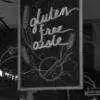-
Welcome to Celiac.com!
You have found your celiac tribe! Join us and ask questions in our forum, share your story, and connect with others.
-
Celiac.com Sponsor (A1):
Celiac.com Sponsor (A1-M):
-
Get Celiac.com Updates:Support Our Content
Small Bowel Overgrowth
-
Get Celiac.com Updates:Support Celiac.com:
-
Celiac.com Sponsor (A17):
Celiac.com Sponsor (A17):
Celiac.com Sponsors (A17-M):
-
Recent Activity
-
- knitty kitty replied to Sarah Grace's topic in Related Issues & Disorders25
Headaches / Migraines and Hypoglycaemia
Excessive dietary tyrosine can cause problems. Everything in moderation. Sulfites can also trigger migraines. Sulfites are found in fermented, pickled and aged foods, like cheese. Sulfites cause a high histamine release. High histamine levels are found in migraine. Following a low histamine diet like the low histamine Autoimmune Protocol diet,... -
- trents replied to Sarah Grace's topic in Related Issues & Disorders25
Headaches / Migraines and Hypoglycaemia
Then we would need to cut out all meat and fish as they are richer sources of tyrosine than nuts and cheese. Something else about certain tyrosine rich foods must be the actual culprit. -
- Scott Adams replied to Russ H's topic in Post Diagnosis, Recovery & Treatment of Celiac Disease1
KAN-101 Treatment for Coeliac Disease
I agree that KAN-101 looks promising, and hope the fast track is approved. From our article below: "KAN-101 shows promise as an immune tolerance therapy aiming to retrain the immune system, potentially allowing safe gluten exposure in the future, but more clinical data is needed to confirm long-term effects." -
- Scott Adams replied to miguel54b's topic in Related Issues & Disorders1
Body dysmorphia experience
Thank you so much for having the courage to share this incredibly vivid and personal experience; it's a powerful reminder of how physical ailments can disrupt our fundamental sense of self. What you're describing sounds less like a purely psychological body dysmorphia and more like a distinct neurological event, likely triggered by the immense physical stress... -
- Scott Adams replied to Colleen H's topic in Related Issues & Disorders2
Heat intolerant... Yikes
The most common nutrient deficiencies associated with celiac disease that may lead to testing for the condition include iron, vitamin D, folate (vitamin B9), vitamin B12, calcium, zinc, and magnesium. Unfortunately many doctors, including my own doctor at the time, don't do extensive follow up testing for a broad range of nutrient deficiencies, nor recommend...
-





Recommended Posts
Archived
This topic is now archived and is closed to further replies.